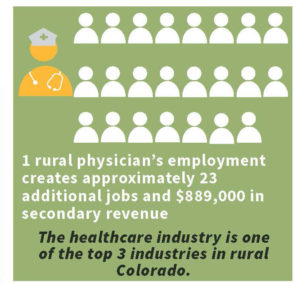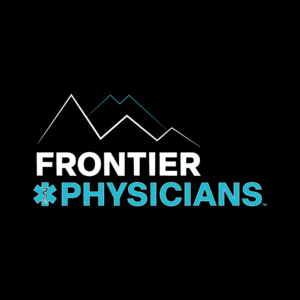
CEO Article: April – The Famous Unicorn Frappuccino
 Have you heard about the latest craze that is driving baristas crazy, the Unicorn Frappuccino? It sells life as fun and sparkling and all your dreams will come true if you drink the Unicorn Frappuccino. Well we need a fix for rural communities to sustain healthcare – maybe a giant size Unicorn Frappuccino will help!
Have you heard about the latest craze that is driving baristas crazy, the Unicorn Frappuccino? It sells life as fun and sparkling and all your dreams will come true if you drink the Unicorn Frappuccino. Well we need a fix for rural communities to sustain healthcare – maybe a giant size Unicorn Frappuccino will help! 
As you have undoubtedly heard, healthcare in rural communities is at risk. We have twelve rural hospitals that are operating in the red and if the hospital provider fee bill SB17-267 does not pass, some hospitals may close, others may have to lay off staff that are both their families and friends, and still others may have to reduce services that are desperately needed. Seventy three percent of the landmass in Colorado is rural and 718,539 Coloradoans live in rural and these people are important. Konnie Martin, CEO from San Luis Valley Medical Center was quoted in the recent Denver Post article saying “Where you live shouldn’t determine if you live.” We at the Colorado Rural Health Center couldn’t agree more! Our mission is to enhance healthcare services in the state by providing information, education, linkages, tools and energy towards addressing rural health issues and our vision is to improve healthcare services available in rural communities to ensure that all rural Coloradoans have access to comprehensive affordable high quality healthcare. As a state we are a big eco system and if one part fails, others will suffer.
Rural communities are growing in age., The average age in rural currently is 41 vs. 37 in urban counties and by 2018, the 65 and over rural population is expected to grow from 16.4% to 24.4%, that will represent 40% of the rural population and another 40% of Coloradoans over the age of 80 live in rural Colorado. Research has been shown that chronic disease increases as we age, meaning we cannot leave these individuals without access to healthcare.
Did you know that healthcare is one of the top three industries in rural Colorado and one in 16 jobs in Colorado is in the healthcare sector? That means that when healthcare has to shut down in a town, the town typically dies. A provider typically brings in nearly $900,000 and 23 jobs to the community. Other jobs in rural Colorado tend to be industry and farming, which are dangerous. Recreation in rural Colorado is dangerous – hiking or skiing or rafting or fishing or hunting- and each year, 2.3 million people participate in these and other activities. It’s easy to think that rural healthcare does not impact the rural community, but indeed it does impact everyone that lives in this state.
What are the potential solutions? For starters, Colorado can pass bill SB17-267 Sustainability of Rural Colorado. By passing this bill, rural communities will not be in danger of losing upwards of a million dollars. Recognition at both the state and federal level that rural healthcare is vital to access to care is essential. CRHC works to advocate on behalf of rural communities to ensure payment cuts are restored, rules and regulations are changed to allow greater ease for integration of needed services such as mental, behavioral and oral health and the ever-increasing workforce issues are addressed.
Critical Access Hospitals and Rural Health Clinics provide essential healthcare services in rural communities. You might recall that the Critical Access Hospital program was created by Congress in 1997 to support the fragile rural health infrastructure and stop the closure of hospitals across the country. And Rural Health Clinics were established by Congress in 1977 to support and encourage access to primary healthcare services for rural residents. Let’s not forget what history has taught us.
Unfortunately, we can’t find a Unicorn to fix our troubles, but together we can work in collaboration to help ensure the sustainability of rural health.


